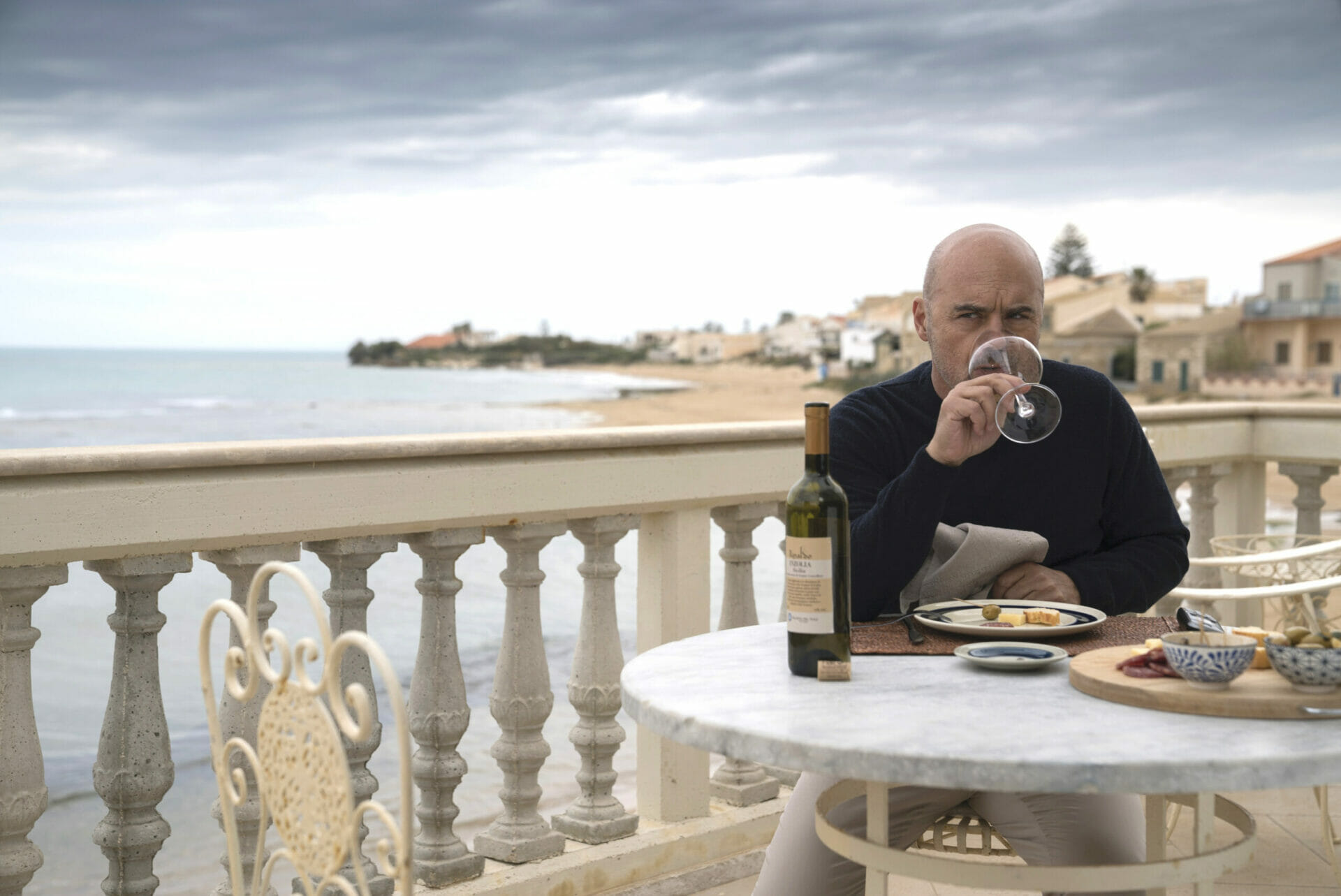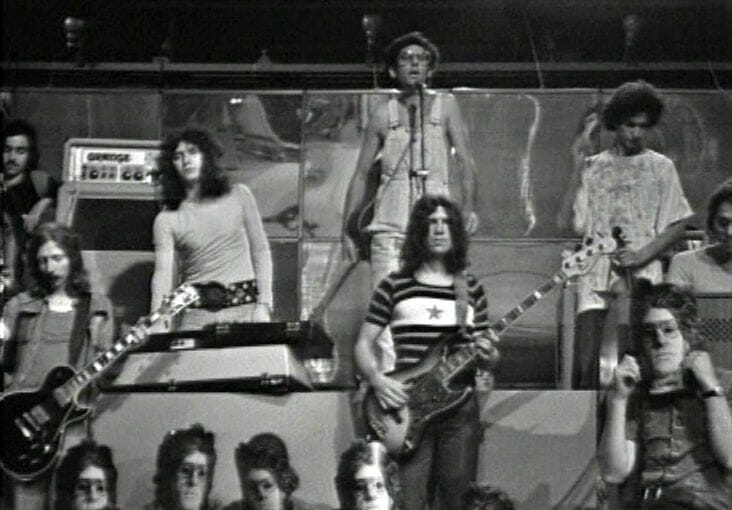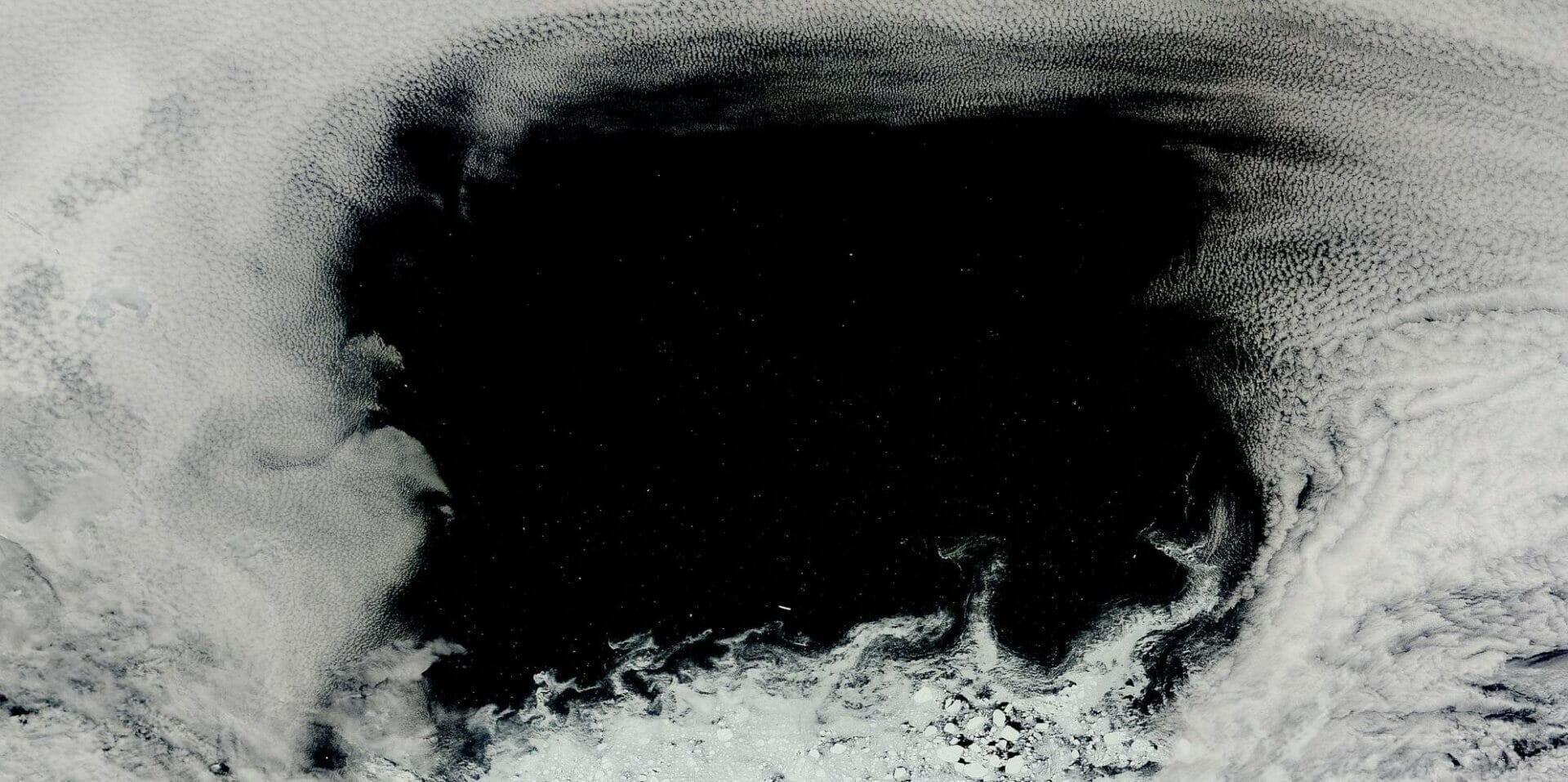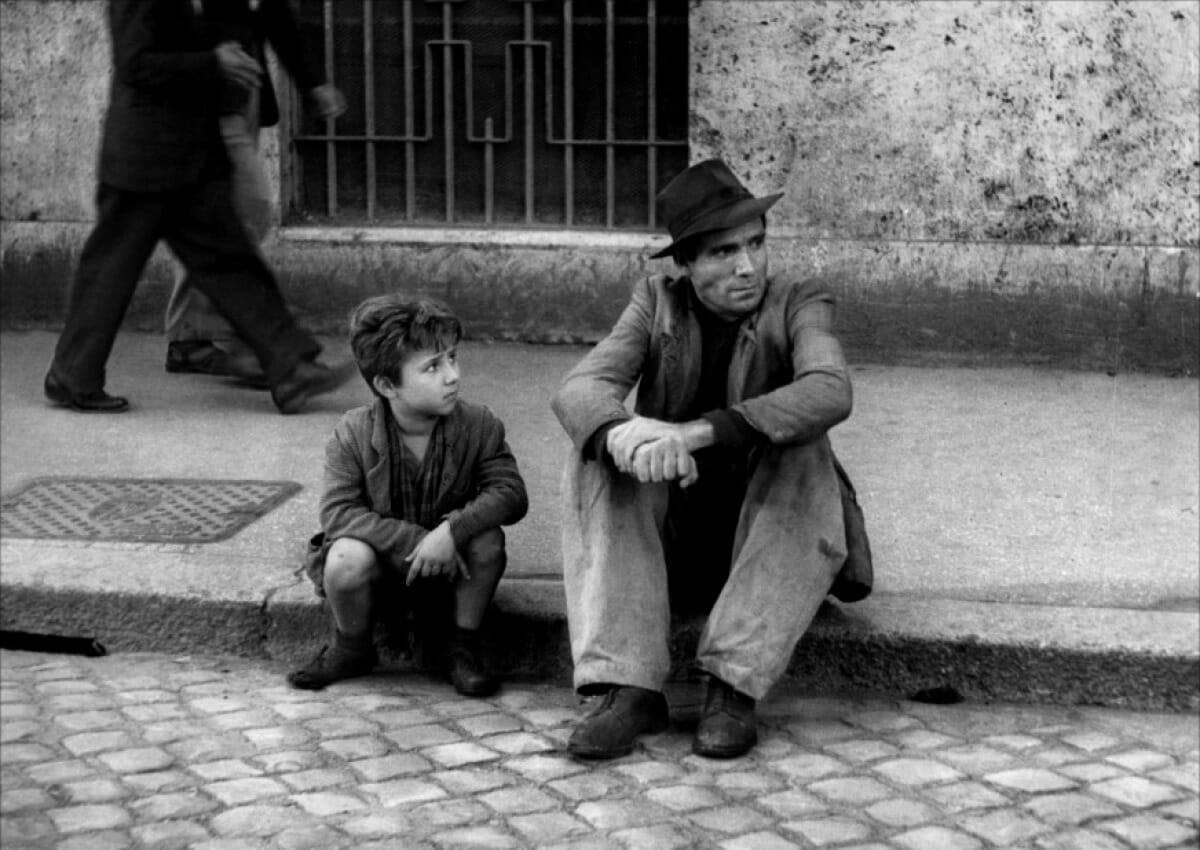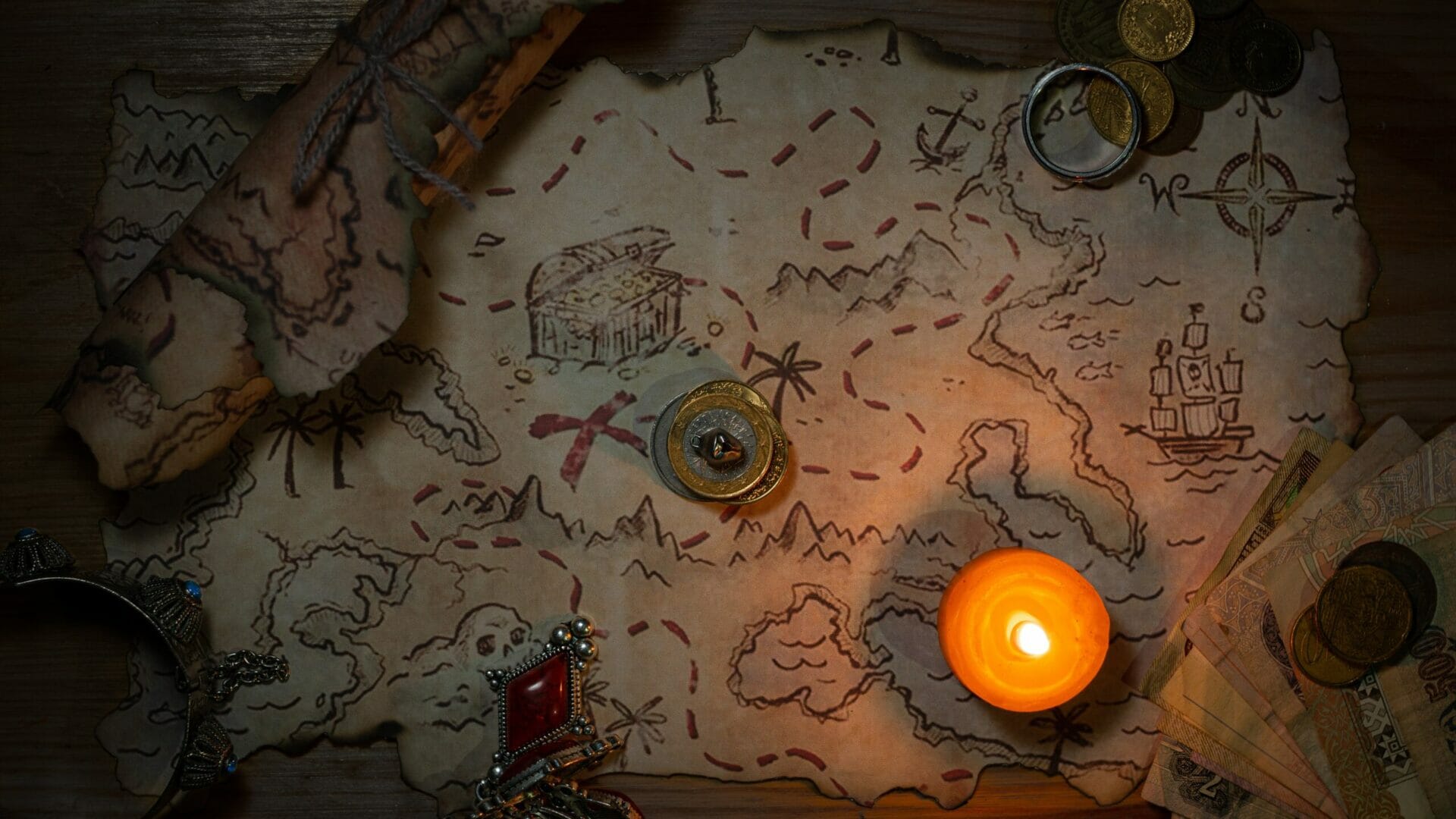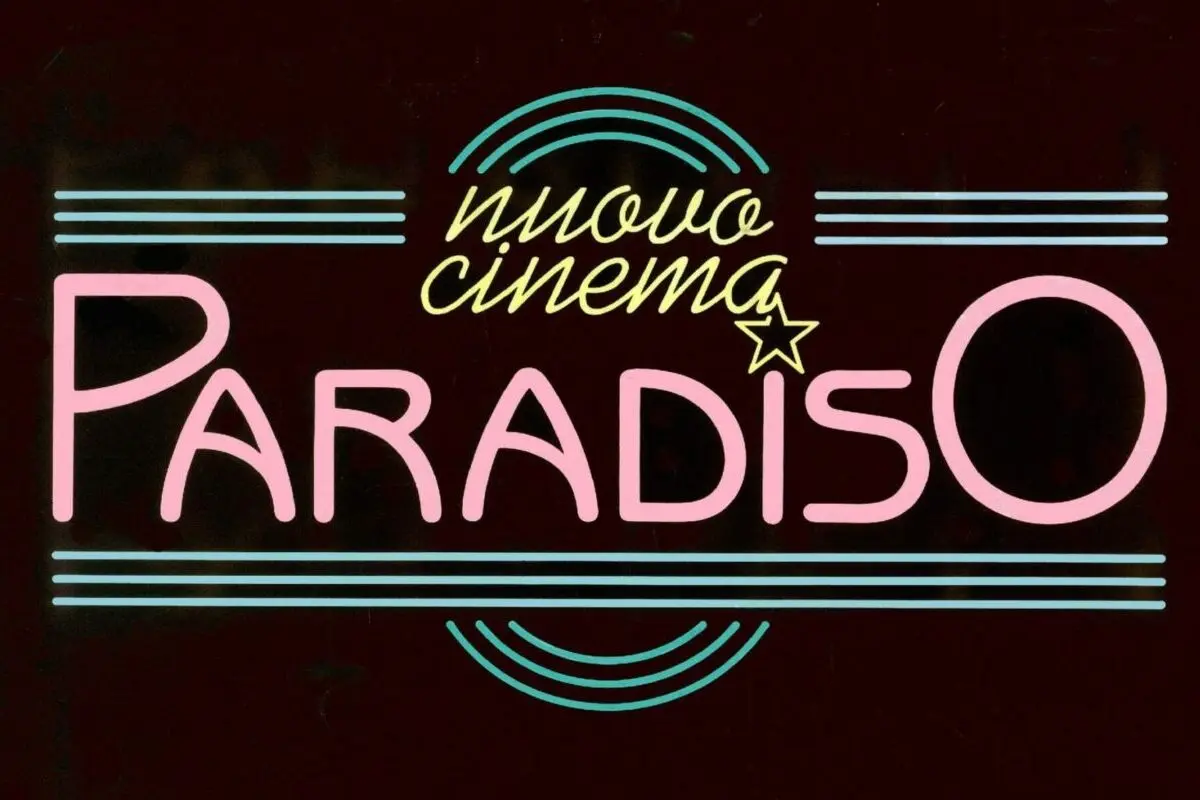
Cinema Paradiso (1988) | Why Tornatore’s Film Became a Classic of World Cinema
Runtime
Cinema Paradiso is often approached as a nostalgic film, yet its lasting relevance comes from a more precise gesture. Released in 1988, Giuseppe Tornatore’s work reflects on cinema as a lived experience and on how images continue to exist beyond the moment of their projection. Through Salvatore’s return to his childhood in a small Sicilian town, the film turns personal memory into a reflection on how cinema shapes the past once it has already become distant.
Now widely regarded as a landmark of Italian cinema, Cinema Paradiso emerged from an uncertain and fragmented release history. Its multiple versions and delayed recognition echo the film’s own preoccupation with time and separation. What ultimately remains is an idea of cinema that endures through memory, even as its forms and spaces disappear.
- Salvatore’s Passion for Cinema and Discovery
- The Mentorship That Shapes a Filmmaker
- Returning to Sicily: Memory and Nostalgia
- Cinema Paradiso as Meta-Cinema
- The Social Role of the Cinema
- Ennio Morricone’s Score and Its Emotional Impact
- From Controversial Release to Worldwide Recognition
Described by Empire magazine as one of the greatest non-English-language films ever made, the original version of Cinema Paradiso (Nuovo Cinema Paradiso), directed and written by Giuseppe Tornatore, was released in Italy in 1988. Two other versions also came out – an international version in 1989 and a director’s cut in 2002. The movie interweaves comedy, drama, and romance, touching melodramatic chords. But it is also a coming-of-age film. It tells the story of a young Sicilian boy inspired and animated by a love for cinema and cinematography, and centers on his relationship with an old projectionist who passed on this lifelong passion to him.
The movie tackles a variety of themes, from the role of cinema after the Second World War to the contrasting relationship between the protagonist and his homeland, Sicily, and the vast galaxy of nostalgia. Everything always revolves around the same pillar: cinema. The movie is a tribute to films about film and a walking example of cinema as ‘le septieme art,’ or the seventh art, as Italian film theoretician Ricciotto Candudo described it in the 1920s. Despite a troubled debut, Cinema Paradiso has become a major milestone in the history of cinematography, both in Italy and around the world. This is thanks, not least, to the magical atmospheres created by the film score, which was composed by Italian composer Ennio Morricone.
Salvatore’s Passion for Cinema and Discovery
Cinema Paradiso narrates, through an extended flashback, the story of Salvatore. Nicknamed ‘Totò’ and played by Salvatore Cascio, Marco Leonardi, and Jacques Perrin, he is a respected filmmaker who, after receiving news of the death of his beloved mentor, retraces his life in one night.
The young Totò lives in a small town in post-World War II Sicily and has a great passion for cinematography. He takes advantage of every opportunity to sneak into the local movie theater, named “Cinema Paradiso”, with the help of projectionist Alfredo (Philippe Noiret). Totò convinces the man to teach him the tricks of the trade. But one day, a tragic accident happens in the movie theater. Alfredo only survives thanks to Totò, even though he loses his sight. This tragic event will bind them inextricably. Alfredo will always be a mentor for the boy, even when the latter, having become an adult, decides to leave Sicily to forget an impossible love and pursue his dream of becoming a filmmaker.
The Mentorship That Shapes a Filmmaker
The deep friendship between Totò and Alfredo is at the heart of Cinema Paradiso. The first is a smart, strong-willed boy with a vivid imagination who comes from a poor family and whose father died in the war. On the other hand, Alfredo is a humble and wise man who has worked at his town’s cinema all his life and has no children. Both characters can be traced back to the archetypes of the apprentice and the mentor, and the youngest epitomizes the hero, who does not yet know his own worth. The meeting with Alfredo is, therefore, crucial, as he is the first to recognize the boy’s creative potential. He is the guide who motivates the boy, spurring him toward adventure. The projectionist helps him cross the threshold into an extraordinary world, full of wonders.
The bond between the two evolves as the story continues, slowly growing closer to that between father and son. But it doesn’t end there. Their bond will change further when Totò saves the projectionist from the fire and teaches him to “see” again. The boy then becomes Alfredo’s eyes. Totò not only takes over as his guide and cares for him but also teaches him to see things from a different perspective, almost like a filmmaker does when telling a story.
Returning to Sicily: Memory and Nostalgia
Cinema Paradiso is partly based on events from the life of Sicilian director Giuseppe Tornatore. Alfredo is inspired by Tornatore’s friend, the Italian photographer Mimmo Pintacuda, who not only introduced a young Tornatore to filmmaking but also showed him the importance of images. His teachings were fundamental to Tornatore’s career, and the director himself claims that Pintacuda conditioned his “capacity to see things as a movie director”.
In addition, Cinema Paradiso shows a very strong, if contrasting, bond between the director and his homeland. In the film, Sicily is seen through Totò’s eyes (and, in subtext, Tornatore’s) and is filled with nostalgia. The relationship between Tornatore and Sicily has long been a central theme in his filmography, and the director brings to life, through his fictional characters, the feelings, atmospheres, and contradictions of his homeland. Therefore, even in Cinema Paradiso, Sicily is a source of experiences and memories, mixing fantasy and reality on screen.
Tornatore skillfully imbues the characters with emotions and aversions, crafting realistic Sicilian imagery through the settings and language, gestures, and behavior. In Cinema Paradiso, Sicily is unveiled and explored through the director’s love-hate relationship with it. It is a land that offers few prospects to young people as full of dreams as Totò, or Tornatore himself: it is a land from which it is necessary to move away to fully understand it. But it is also, and above all, a place to which it is inevitable to return to fill the void one feels after leaving it.
Living here day by day, you think it’s the center of the world. You believe nothing will ever change. Then you leave: a year, two years. When you come back, everything’s changed. The thread’s broken. What you came to find isn’t there. What was yours is gone. You have to go away for a long time… many years… before you can come back and find your people. The land where you were born.
Alfredo (Philippe Noiret)
Cinema Paradiso as Meta-Cinema
In essence, Cinema Paradiso has cinematography itself as its true protagonist. And its characters circulate around it. This is, effectively, a meta-cinematographic movie as it explicitly refers to its own language in a self-referential way. Not only does Tornatore insert many scenes from Hollywood and Italian neorealism classics by mockingly linking them to the events of the movie, but Alfredo, for example, is wont to use movie quotes to dispense advice to the young Totò. Also, the boy often uses the camera to show the world through his eyes. As a result, the viewer follows his point of view and, by reflection, Tornatore’s, who demonstrates a conscious use of the medium to investigate his art. The director resorts to this expedient to reflect on his own way of making movies, in which an anchoring to his roots is more evident than ever.
What is more, in Cinema Paradiso, cinematography and the movie theater play a key role in the protagonist’s life, becoming a natural refuge, a place where Totò has been seeking protection since childhood. A safe place in which to forget the sorrows of his life.
The Social Role of Movie Theaters
From another perspective, the movie theater also serves as a reference point for the local town, a source of entertainment where everyone can identify with the characters on screen, forgetting the problems of everyday life. In this way, Tornatore skillfully highlights the social castes of the time through a specific visual stratagem: their placement inside the movie theater.
The less affluent sit in the stalls, while the wealthier occupy the upper seats: this separation between the upper and lower classes is a classic narrative device used by many directors, such as Bong Joon-ho. In doing so, the director also shows the collective role of cinema: despite the social differences among these people, as soon as the lights go down and the screening begins, they share the same collective experience.
Finally, in Cinema Paradiso, the director also highlights the contrast between the crowding of movie theaters after World War II and the period of decline in Italian cinema in the 1980s. During this decade, Italian genre cinema entered a dark period, leading to a marked drop in movie theater attendance. Therefore, Tornatore also aimed to spark reflection on a long-gone time when movie theaters were overflowing, and on how cinema has evolved since.
Many other filmmakers used meta-cinema in their works, including Billy Wilder in Sunset Boulevard (1950), Federico Fellini in 8½ (1963), and Quentin Tarantino, who used it in many of his movies, such as Pulp Fiction (1994), Inglourious Basterds (2009), and Once Upon a Time in Hollywood (2019).
Ennio Morricone’s Score and Its Emotional Impact
The soundtrack produced by award-winning Italian composer Ennio Morricone is an essential element of Cinema Paradiso. Morricone successfully captured the essence of Tornatore’s movie by combining image and sound in an exemplary way. The Main Theme, born from the combination of piano, saxophone, and string quartet, gently introduces the viewer to the imaginary world. Distinguishing features of the musical score are the lively, delicate symphonies that accompany the protagonist’s childhood and the more melancholy passages that outline his adult life.
The orchestral symphonies drag in rural Sicilian atmospheres, blending with the images. The famous piece entitled Love Theme, composed by Morricone’s son, Andrea, is poignant and intense. It plunges the viewer into a bittersweet dimension, and the theme that serves as the backdrop to the protagonist’s tormented love emerges from the interplay of piano, romantic strings, and saxophone. The result is a nostalgic anthem that envelops the viewer, transporting them into a bewitching dream.
Cinema Paradiso de facto marks the beginning of the artistic partnership between director Tornatore and maestro Ennio Morricone that lasted until the composer’s recent death. The director dedicated the documentary Ennio: The Maestro (2021) to Morricone’s career and their deep friendship.
With the music composed for Cinema Paradiso, Morricone once again demonstrated experimentation with sound, above all by conceiving the soundtrack as an element capable of establishing a relationship of interdependence with the movie, rather than as a decorative element.
From Controversial Release to Worldwide Recognition
Cinema Paradiso suffered a particularly troubled history. Especially in its debut. Much of the reason for the initial partial failure at the box office was attributed to the movie’s length (174′). For this reason, it was later screened in a shortened version at 155′, then distributed internationally in the 123′ version. It was indeed the international version that obtained public and critical acclaim. At the 42nd Cannes Film Festival, Cinema Paradiso won the Jury’s Special Grand Prix. Later, it won the Golden Globe Award for Best Foreign Language Film. Then the Academy Award for Best International Feature Film, and the BAFTA Award for Best Film Not in the English Language.
Ultimately, widely regarded as one of the classics of Italian cinema, Cinema Paradiso never ceases to excite old and new generations. After more than three decades, despite the extensive changes in the movie industry and the moviegoing experience, this movie shows how the seventh art and movie theaters continue to fascinate and enchant millions of viewers around the world. Thus, the picture has changed, but the intrinsic message of Cinema Paradiso remains the same. For nothing can replace the social, cultural, and collective value of the movie theater experience.
Tag
Buy a ☕ for Hypercritic







